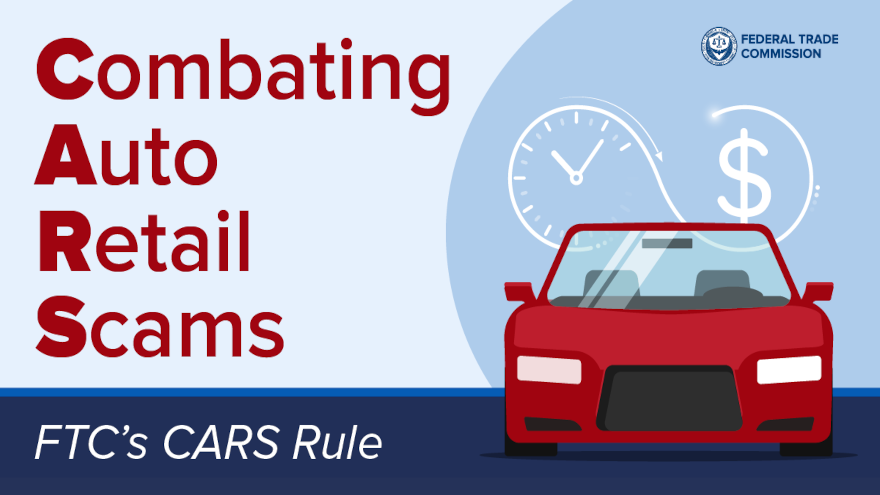New FTC rule delayed by dealer activity in federal appeals court

Image courtesy of the Federal Trade Commission.
By subscribing, you agree to receive communications from Auto Remarketing and our partners in accordance with our Privacy Policy. We may share your information with select partners and sponsors who may contact you about their products and services. You may unsubscribe at any time.
Dealers will get their time in court.
Late on Thursday, the Federal Trade Commission issued an order postponing the effective date of the Combating Auto Retail Scams (CARS) Rule while a legal challenge against the rule is pending from the National Automobile Dealers Association and the Texas Automobile Dealers Association in the U.S. Court of Appeals for the Fifth Circuit.
Previously, the rule was set to be implemented on July 30.
“We are pleased that the FTC has determined that ‘it is in the interests of justice to stay the effective date of the rule to allow for judicial review,’” NADA president and CEO Mike Stanton said in a statement.
“We continue to believe the rule is unnecessary, redundant, confusing, and will needlessly lengthen the car sales process for consumers,” Stanton continued. “The FTC failed to demonstrate the need for the rule and has not tested the effectiveness of its mandates with consumers.
“NADA will continue to advocate in the courts and in Congress to keep this ill-conceived rule from taking effect,” Stanton went on to say.
Subscribe to Auto Remarketing to stay informed and stay ahead.
By subscribing, you agree to receive communications from Auto Remarketing and our partners in accordance with our Privacy Policy. We may share your information with select partners and sponsors who may contact you about their products and services. You may unsubscribe at any time.
In an industry message, Ignite Consulting Partners acknowledged, “It remains to be seen how long the delay will be and how quickly the Fifth Circuit takes up the matter. What we do know is that July 30 is no longer the effective date.”
Through its own release, the FTC reiterated why it wants to enact the CARS Rule, which the regulator revealed in December.
At that time, the FTC explained the CARS Rule prohibits dealers from using “bait-and-switch claims to lure vehicle buyers to the lot,” including about the cost of a car or the terms of financing, the availability of any discounts or rebates, and the actual availability of the vehicles being advertised.
“It also tackles hidden junk fees — charges buried in lengthy contracts that consumers never agreed to pay. In some cases, these fees are for services or products that provide no benefit to consumers,” the FTC said.
In Thursday’s news release, the FTC acknowledged that the two dealer groups have petitioned to overturn the rule, asserting that the rule should be stayed while the court challenge is pending.
“In its order, the commission notes that these assertions rest on mischaracterizations of what the rule requires. Specifically, the commission’s order points to the inaccurate argument that the rule will increase compliance costs for car dealers, which is not true for dealers who currently follow the law,” the FTC said.
“The commission’s order states, ‘In fact, the rule does not impose substantial costs, if any, on dealers that presently comply with the law, and to the extent there are costs, those are outweighed by the benefits to consumers, to law-abiding dealers, and to fair competition — as honest dealers will not be at a competitive disadvantage relative to dishonest dealers,’” the FTC continued.
The FTC also said its order explains that “the petitioners’ suggestion that legally compliant dealers have to make unnecessary changes to satisfy petitioners’ misunderstandings of the rule have created uncertainty.
“The commission further notes that if the court reviewing the rule grants expedited review, as the litigants requested, a stay of the effective date should not postpone implementation of the rule by more than a few months, if at all. The rule was set to go into effect July 30,” officials went on to say.
The FTC maintained that the CARS Rule will save consumers more than $3.4 billion and an estimated 72 million hours each year shopping for vehicles by “targeting persistent and illegal bait-and-switch scams and junk fees in the car buying process.”


